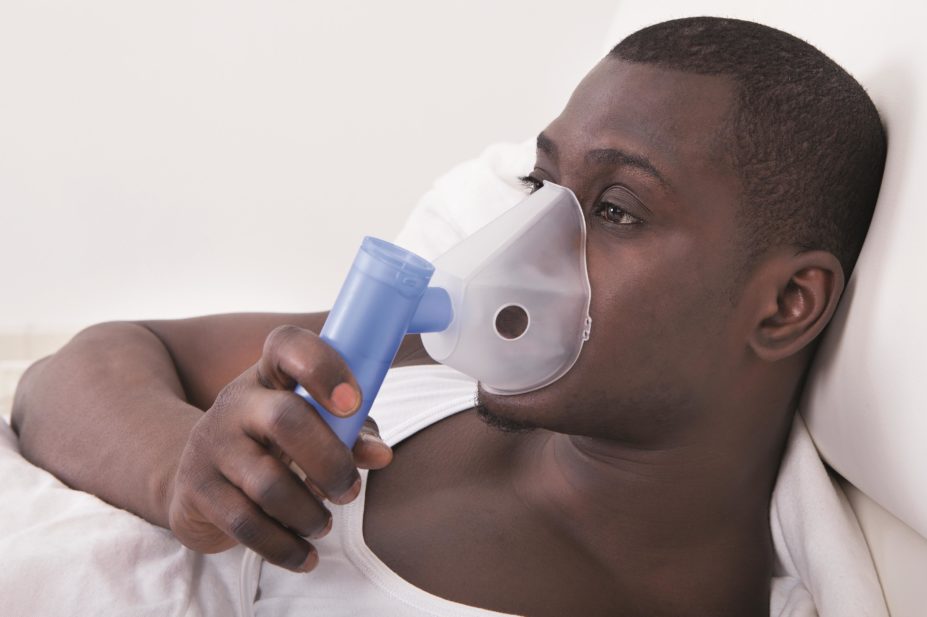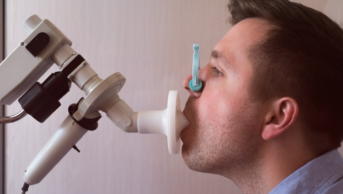
Andrey_Popov / Shutterstock.com
Beta2 agonist drugs are used for their bronchodilatory properties in chronic obstructive pulmonary disease (COPD), yet a paradoxical bronchoconstrictive effect, resulting in respiratory distress, occurs in some people.
The first systematic study of responses to beta2 agonists has identified paradoxical bronchoconstriction in 5% of nearly 10,000 patients with COPD. A paradoxical response was twice as common in African–American patients than in other racial groups, and was also associated with worse respiratory outcomes, including more severe dyspnoea, shorter six-minute walk distance and more frequent severe exacerbations.
“These findings might have implications for the use of beta2 agonists in some patients,” conclude Surya Bhatt, from the University of Alabama in Birmingham, and colleagues writing in The Lancet Respiratory Medicine (online, 10 September 2014).[1]


